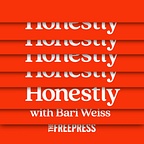A few months ago, we learned about a young man whose name we’re withholding, which is something we very rarely do, because he insists it’s for his safety.
This young Palestinian man is from a small village in the West Bank, and he grew up there with limited access to water and without a regular supply of electricity. Most of the kids he grew up with dro…
Start Your Free Trial to Unlock This Story
Support our journalism and unlock all of our investigative stories and provocative commentary about the world as it actually is. Get your first 7 days free.
$8.33/month
Billed as $100 yearly
$10/month
Billed as $10 monthly
Already have an account?
Sign In
Make a comment
Share article


